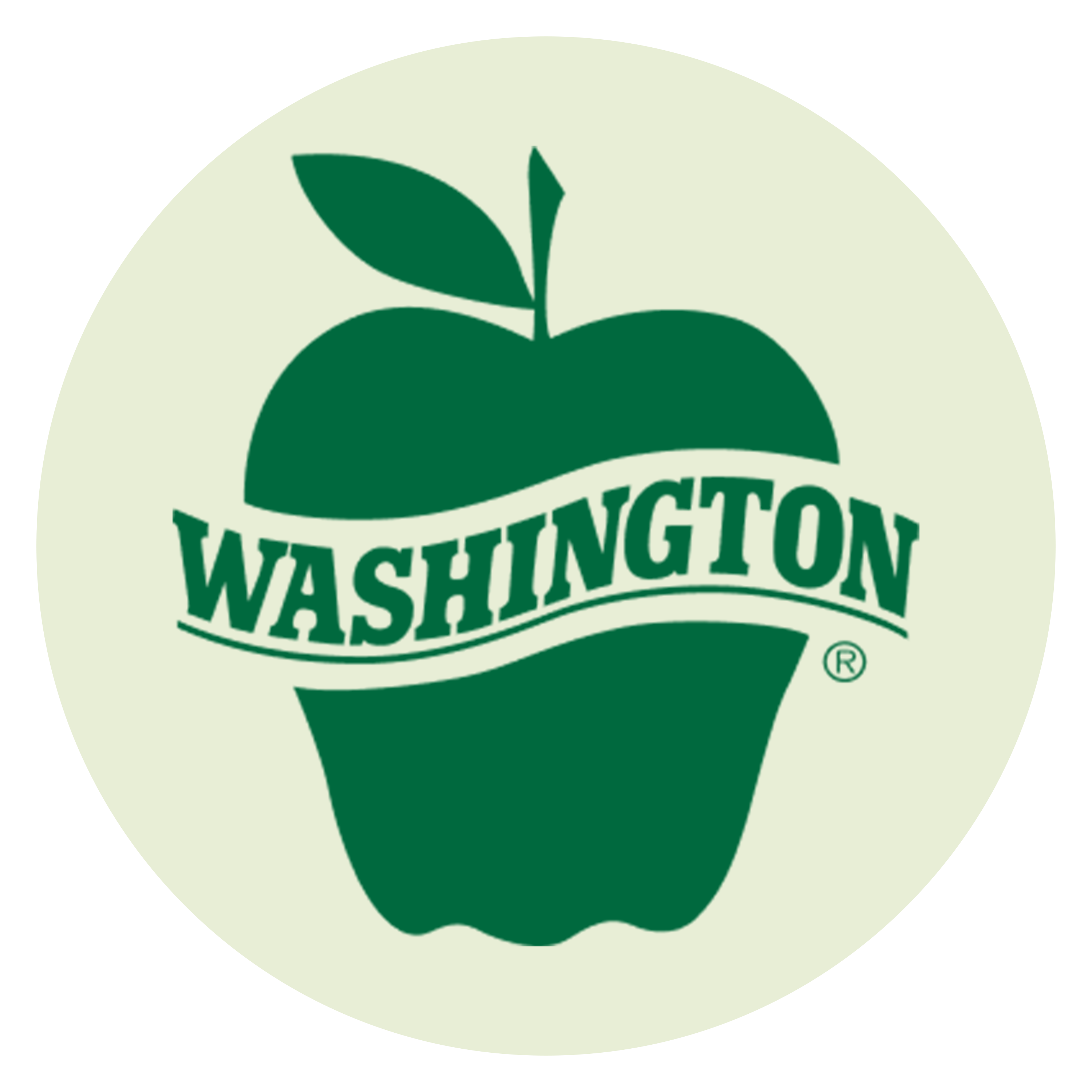
The same arid climate, plentiful water, and advanced growing techniques that make Washington one of the premier apple-growing areas in the world also make it one of the finest places to grow organic fruit.
WASHINGTON GROWS OVER 85% OF US CERTIFIED ORGANIC APPLES
Dry, ideal temperatures reduce the number of disease and pest problems, which decreases the need for applications to control insects. Plus, our state’s unmatched history of cutting-edge production processes encourages more growers and packers to explore organic. Washington state is home to over 16,000 acres of certified organic apple orchards.
HOW WE DO ORGANIC
“Organic” refers to the way agricultural products are grown and processed. Organic food production is based on a system of farming that maintains and replenishes soil fertility through the use of non-synthetic fertilizers and biological pest controls. Only substances found in nature can be used in organic farming.
Organic Washington apples are grown and packed using practices to prevent pests and disease. If these preventative practices are ineffective, materials and methods approved by the United States Department of Agriculture (USDA) organic regulations, which rely on natural materials and processes, may be used. Organic orchards receive nutrition and fertilizers consisting of compost, animal manure, fishmeal, plant residues and other natural nutrients. Natural pest control methods are derived from plant extracts, the fermentations of yeast, beneficial insects, mating disruption pheromones and systems that bait and trap pests. Weeds may be controlled by mulching, cover plantings, mechanical methods, and in some cases an approved non-synthetic herbicide.
In addition, certified organic apples can be processed and packed only on equipment using belts, brushes and water specially cleaned and prepared to handle organic fruit. Organic apples may not commingle with conventionally grown apples in either the orchard or in the packing houses.
In order to become a certified organic apple orchard, the land on which the apples are grown must have been farmed organically for three years or fallowed for three years. This means that for at least three years prior to the first certified organic harvest, only practices and materials allowed under USDA organic regulations have been used. Prior to this three-year period, the apples from the orchard are considered “transitional fruit.” Transitional fruit cannot be sold as certified organically grown.
INSPECTION AND MONITORING ORGANIC APPLES, ORCHARDS, AND PRACTICES
Organic orchards and packing facilities are inspected every year by USDA-accredited certifiers, such as The Washington State Department of Agriculture. During the certification process, random and risk-based residue and soil samples are collected to verify compliance with organic production standards.
Additionally, USDA organic regulations require apple producers and handlers to submit an Organic System Plan. The plan must document the preventative practices and procedures used, the materials that may be used, and how records are maintained. For growers who produce or handle both organic and conventional apples, there must also be procedures in place to prevent commingling. An annual update of the system plan must also be submitted each year.
HOW TO SPOT AN ORGANIC APPLE
In addition to any WSDA/USDA organic symbols on your apple’s sticker, look for the number 9 as the first digit on the PLU code. That will indicate that it’s organic.
PROTECTING OUR ENVIRONMENT
Growers in Washington work continually with, rather than against, nature. They rely on natural pest enemies, pest-resistant varieties, pest monitoring, horticultural practices and other methods to minimize the need for agrichemicals. Today’s advanced pest management techniques offer other alternatives to pesticides, as farmers have a heightened awareness of environmental and safety issues.
WASHINGTON APPLE GROWERS ARE COMMITTED TO MINIMIZING ENVIRONMENTAL IMPACT AND ENSURING ORCHARDS ARE STILL GROWING FOR GENERATIONS
Integrated pest management (IPM) is a philosophy of pest control founded on the principles of pest and natural enemy biology and ecology. Monitoring, predictive models, and treatment thresholds are used to determine the appropriate use of different control tactics. Several control tactics, including biological, chemical, behavioral, cultural and genetics, are employed to avoid crop loss, produce a quality fruit, and minimize harmful effects on the environment.
A definition of IPM adopted by Washington fruit growers reads: “Integrated pest management is a site-specific, information-based, multi-tactic decision making process for the management of pests that is profitable for the grower and promotes health and environmental quality.”
Learn more about apples and IPM at the Washington State University Tree Fruit Research and Extension Center.